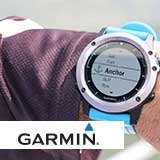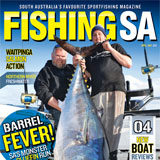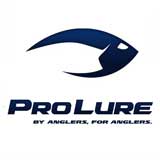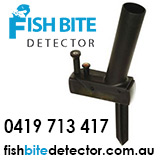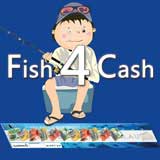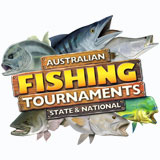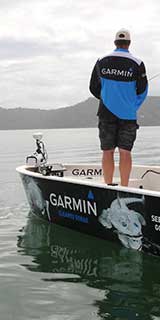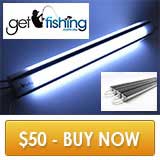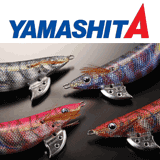Species ID
View AllWest Australian Dhufish
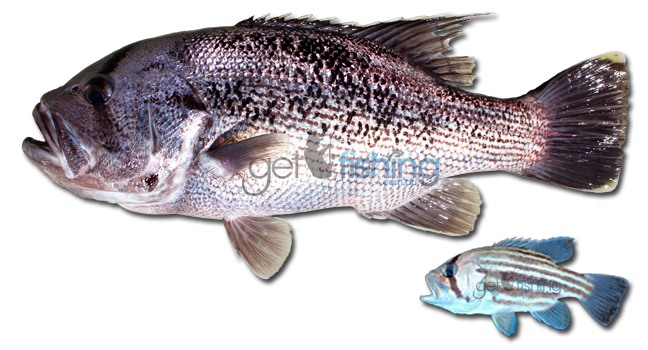
Dhufish are a high-risk inshore demersal reef fish and a WA fishing icon. The fact that they fight well, taste great and grow to over 25kg in size, makes them arguably the most sought after table fish by boat fishers in the south-west.
They are a deep-bodied robust fish with a large head, thick tail and continuous dorsal fin. They have a large mouth and big eyes suitable to hunting at night. They are bright silver in colour with irregular patchy black scales on the upper body and have a distinguishing broad dark chevron-shaped line running from their forehead to the base of the gill plate via the eye. Juveniles have horizontal black stripes running along the body. Males are distinguished from females by the presence of an elongated white filament on the dorsal fin.
Other names
Dhufish, Dhuies, Jewfish, Jewie, Western Jewfish, West Australian Jewfish, Westralian Jewfish
Common size
40-70cm
Related species
Pearl Perch
Lifespan
Over 40 years
Habitat
Dhuies are an inshore demersal reef fish generally found between the depths of 20-50m, although from time to time anglers are lucky enough to catch them in shallower water from the shore. They prefer reef habitats with caves and ledges and sometimes patchy sand, rubble and low-lying reef.
Reproduction
Dhuies are a slow-growing species that reach maturity at approximately 3 years old and 30cm in length. At this young age females produce relatively few eggs and spawn less frequently than larger females. In the warmer months, between November and April, adults aggregate to spawn over areas of isolated reef and weedy sand patches. Fertilised eggs are then distributed along the coast by prevailing currents.
Diet
Dhuies are nocturnal predators but also feed during daylight hours. They feed on a variety of reef-dwelling organisms such as octopus, cuttlefish, squid, fish, lobster, crabs and other invertebrates.
Pound for pound
Dhufish are a strong fighter due to their robust build. However, you wouldn’t really classify them as a sport fish and pound for pound they would rank low to medium comparatively. They are more of a heavyweight fighter going hard near the bottom with short, hard bursts (often into caves) but once you get them off the bottom and half-way up it’s all over due to the expanding gas inside their body.
Catch care
Dhuies suffer greatly from barotrauma so if you intend to release one for whatever reason it’s best to use a mandatory a release weight. If you want to make the most out of one you intend to keep you must look after it properly. Immediate ike jime and dispatch humanely, bleed well and place on ice ideally in a salty ice slurry.
Information courtesy of Department of Fisheries WA. Fast facts photo courtesy of Beau Saludra, Perth WA.
5 stars. Dhufish are regarded as one of the best eating fish in Western Australian waters and are arguably one of the best eating fish in Australia. In seafood markets and restaurants Dhufish are up there with the most expensive and for good reason. Their superb white flesh is flaky, juicy and rich in flavour. The fillets can be baked, fried, grilled, steamed, poached or barbecued. The frames and wings make great fish stock for use in soups etc and the wings are delicious barbecued or deep fried in a light dusting of flour or batter.
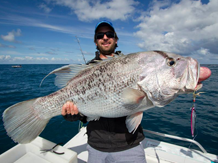
- Is a member of the family Glaucosomatidae (pearl perches)
- Are an iconic WA target species
- Can grow to 122cm in length and 26kg in weight
- Males distinguished by their long, white, filamentous dorsal fin
- Often regurgitate whole fish, octopus and even crayfish on the deck of your boat when landed
- Dhufish are endemic to Western Australia and do not live anywhere else in the world
- They suffer greatly from barotrauma when brought to the surface
- Good eating

